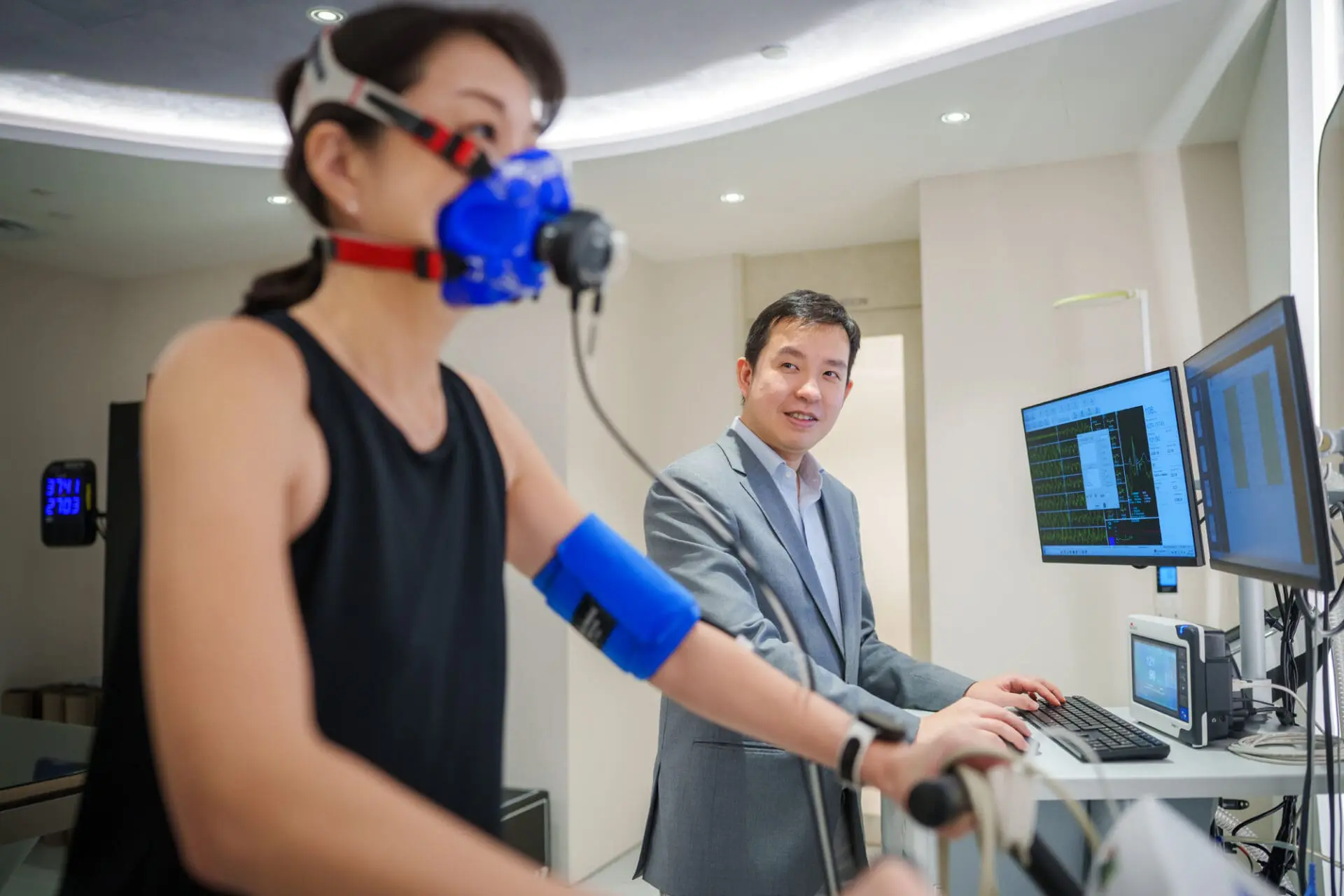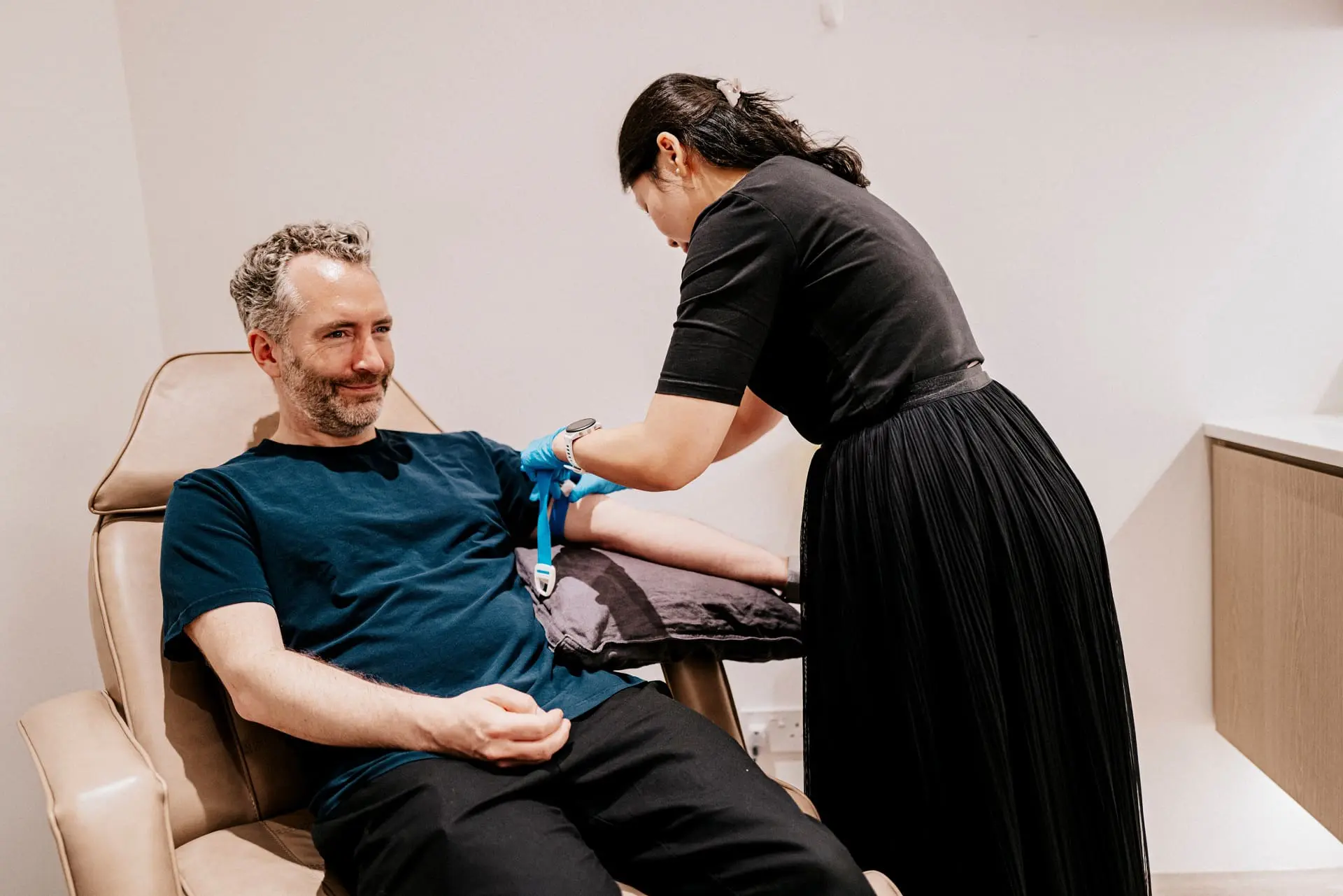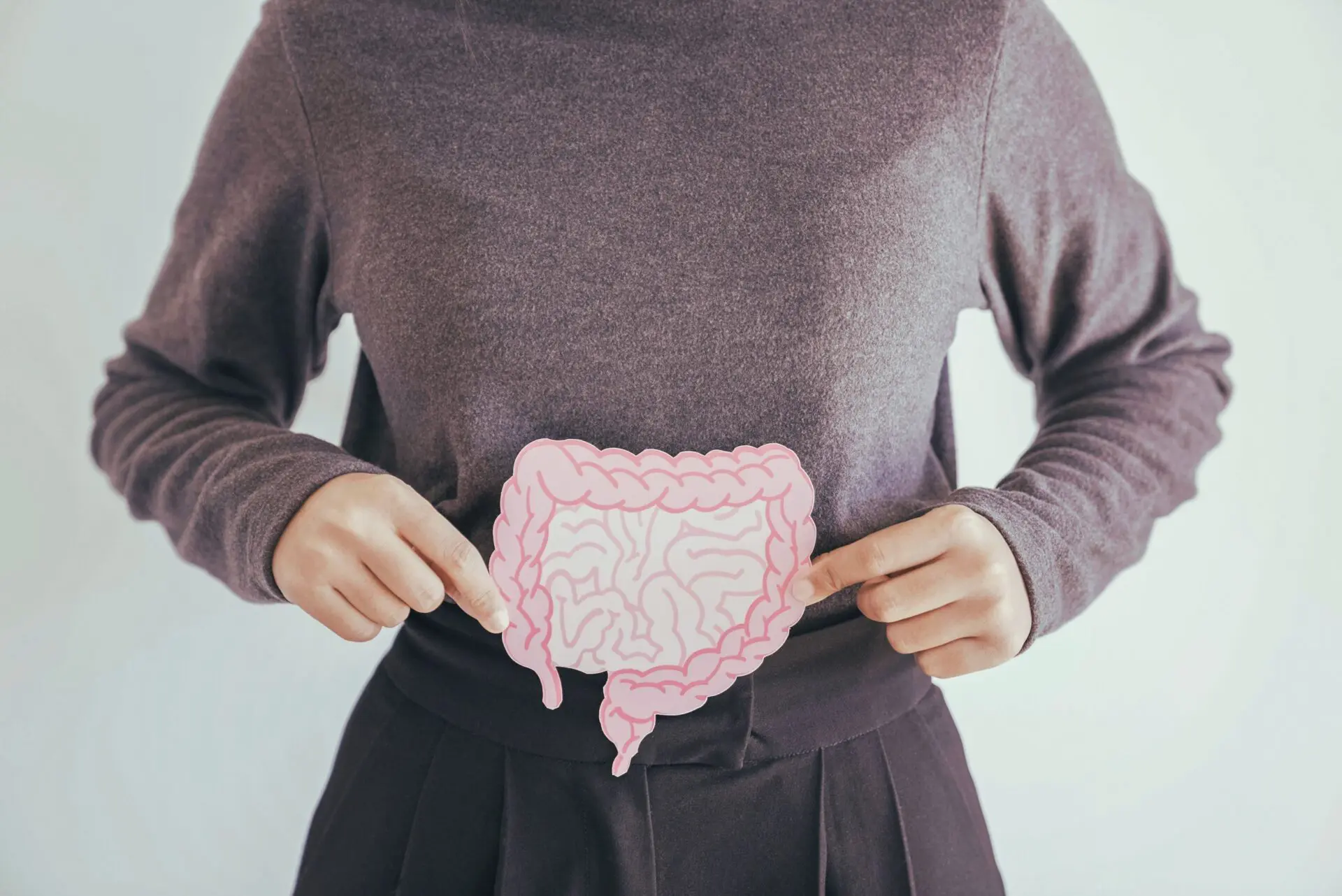Good morning Dr. Leong, what role do you play in the Chi Longevity Team?
My role within the Chi Longevity team is to lead the medical aspect of our comprehensive healthy longevity programs. I collaborate closely with our multidisciplinary team to design personalised interventions that integrate the latest evidence-based advancements in medical science and lifestyle optimisation.
Can you tell us a little bit about your background?
I hold a medical degree from the University of London and am fully registered with the Singapore Medical Council, enabling me to practice healthy longevity medicine in Singapore. My background encompasses more than 15 years of clinical experience in fields such as oncology, internal medicine, dermatology, radiology, pathology, general practice, health screening and aesthetic medicine. I also hold advanced degrees in engineering and finance.
Wow, impressive credentials! Are there any areas of medicine you are most interested in?
I am particularly interested in preventive and personalised medicine, focusing on interventions that can intervene with positively impact the ageing process and promote healthy longevity. My interest in healthy longevity stems from a desire to shift the paradigm of healthcare towards proactive measures. Witnessing the potential for individuals to age gracefully and maintain optimal health motivates me to explore innovative approaches.
When is the right time for people to focus on their health and change their health trajectory?
It’s never too early (or too late!) to focus on health, but the transition from the 30s to 40s often marks a critical period. This is when health trajectories can start to shift, making it an opportune time for individuals to proactively address lifestyle factors and preventive measures.
How important is it to know about one’s family history when assessing an individual’s health?
Understanding one’s family history is paramount. It provides essential insights into genetic predispositions, allowing for targeted preventive measures tailored to individual risk profiles.
What, in your opinion, are some of the psychological barriers clients have when considering undertaking a healthy longevity journey?
Clients often face psychological barriers rooted in unwillingness to change established behaviours and lifestyle patterns or face misconceptions about addressing the ageing process. Addressing these concerns and emphasising the positive impact of personalised longevity strategies is crucial.
What are the most important diagnostics you use to measure biological age?
Key diagnostics include biomarker assessments, genetic testing, microbiome testing, functional testing and imaging studies. These tools help us measure biological age and identify potential areas for intervention.
When you reveal and interpret the results of a client’s diagnostic tests, what are some of the insights they find most valuable?
Clients often find detailed insights into their personalised risk profiles most valuable. This knowledge empowers them to make informed decisions for lasting health improvements. Our clients also find the fact that our goal for them is not just getting their metrics into the “normal” range but into the “optimal” range inspiring. This is something they don’t normally get information on.
Are there any healthy fads you think are dangerous or to be avoided?
While some trends can be beneficial, caution is necessary. Extreme diets or unregulated supplements may pose risks. I advocate for evidence-based approaches that prioritise long-term well-being.
What are your views on supplements?
Supplements can play a supportive role, but a personalised dietetics approach is foundational. Individualised assessments guide our approach, ensuring targeted supplementation where needed. This is why we encourage re-testing for our clients, so we can see the effects of the interventions including supplements.
Can you think of any examples where you feel you’ve made a big difference to a client’s future health prospects?
I recall a case where analysis of a client’s genetic predispositions, biomarkers and functional parameters allowed us to implement preemptive measures with normal fasting glucose and cholesterol. The client was found to at risk of diabetes on continuous glucose monitoring and had an elevated cardiovascular risk from his blood markers (homocysteine, lipoprotein-A and apolipoprotein-B), functional measures (VO2max and pulse wave velocity), microbiome composition and genetic predispositions. We used a multimodality approach to management (supplements, diet, exercise and sleep modifications) to reduce the client’s risk of future diabetes and cardiovascular disease. This exemplifies the transformative impact of proactive, personalised healthcare.
Are there any health breakthroughs that you’re excited about for the future?
I am enthusiastic about breakthroughs in personalised medicine and regenerative medicine. I also believe in the potential of artificial intelligence to offer personalisation at scale and optimise health interventions.



